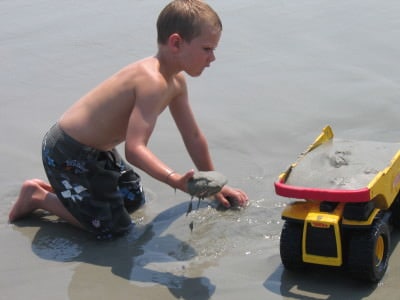

Wednesday, June 4, marked the five-year anniversary of the adoption of the Common Core State Standards in North Carolina.
How did you celebrate?
On June 3, 2010, the N.C. State Board of Education voted unanimously to adopt the Common Core State Standards and to become a governing member of one of the testing arms of the Common Core, SMARTER Balanced Assessment Consortium.
The vote came just one day after the National Governors Association and the Council of Chief State School Officers released the final version of the common mathematics and English language arts standards.
The circumstances surrounding adoption remain a central issue in the debate over Common Core in North Carolina. Minutes of the June 3 meeting claimed that there had been “extensive discussion over many months regarding the Common Core State Standards.” But adopting Common Core standards was a decision largely made behind closed doors.
Judging from approved meeting minutes from 2009 and 2010, the discussions referenced above appear to have involved key members of the board, N.C. Department of Public Instruction staff, and then-Gov. Bev Perdue. State education officials spent little time engaging a diverse group of stakeholders or soliciting input from the public.
That is not to say that there was no feedback from parents, teachers, and concerned citizens. Before publication of the final version of the standards, the CoreStandards.org website served as a portal for public comment nationally.
Blogger extraordinaire Lady Liberty obtained, published, and analyzed feedback from the site. She found that, of the 8,731 comments collected on CoreStandards.org, only 195 came from North Carolina.
A number of North Carolinians who wrote comments on the site identified serious political, pedagogical, and practical shortcomings in the draft standards. Some of their insights, particularly those related to special-needs and English Language Learner students, should have prompted state education officials to launch a broader effort to address their concerns. To my knowledge, that did not occur.
The lack of media coverage further reflected the speed and stealth associated with the adoption of Common Core. Only a handful of the state’s mainstream news organizations noted North Carolina’s adoption of Common Core.
Of course, Carolina Journal reported on the issue promptly and continues to do so. Wire services disseminated the N.C. DPI press release praising the N.C. State Board of Education’s vote. Within a week, the Kinston Free Press, Durham Herald Sun, and Raleigh News & Observer published articles and editorials that touched on various aspects of the standards. And then much of the media spent the next two years largely ignoring the difficulties of Common Core implementation.
Subsequent communications efforts have been less than ideal. It took three years after the adoption of Common Core for DPI staff to provide an informational website, NC Common Core Explained. On several occasions, prominent supporters of Common Core have dismissed the legitimate concerns of its foes, accusing them of lying, asking “absurd” questions, and the like.
Their contempt for those who question the status quo failed to silence the opposition. Rather, it galvanized Common Core pushback in the state and expanded its reach — culminating in state legislators creating a commission in 2014 that is scrutinizing the standards and their implementation.
Yes, it’s a cliche, but “hindsight is 20/20.” I suspect that Superintendent of Public Instruction June Atkinson, then-chairman of the State Board of Education Bill Harrison, and other key players regret not conducting more transparent adoption, implementation, and review processes. The mainstream media, on the other hand, was too busy battling the newly elected Republican majority to concern themselves with Common Core, that is, until some Republican legislators began to oppose it publicly.
Fortunately, they’ve all learned their lessons from this and will be better about communicating with North Carolinians whenever the next “great idea” rolls into town. Or not.


